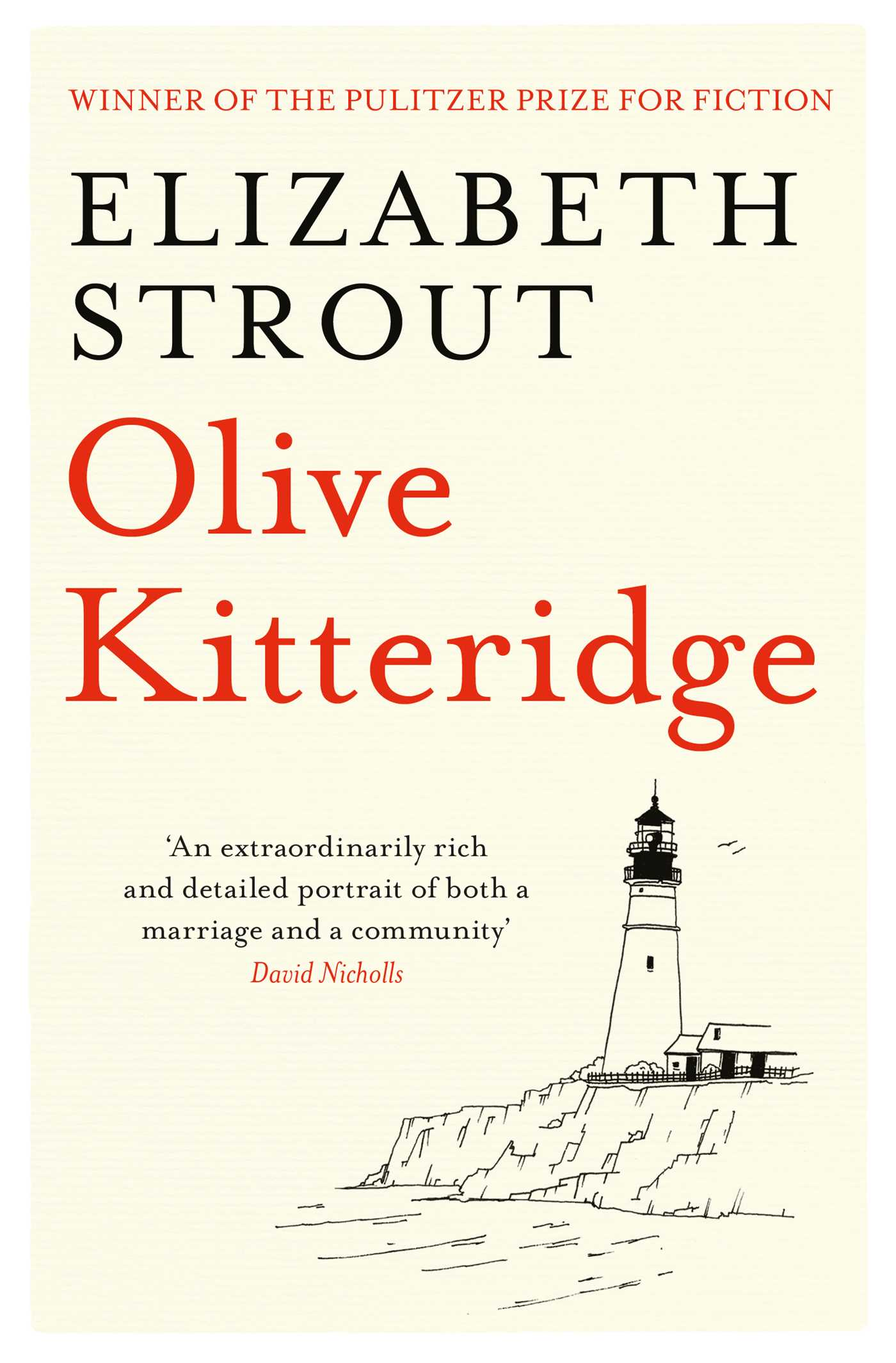April 2020: Olive Kitteridge

Our first Book Club selection is Olive Kitteridge by Elizabeth Strout
Published in 2008, Olive Kitteridge is an unconventional novel by Elizabeth Strout that interlinks 13 tales about the people of Crosby, Maine. The novel appears to be a collection of short stories on the surface, but the unifying element takes the form of the titular character Olive Kitteridge. The novel won the 2009 Pulitzer Prize for Fiction, and Home Box Office created a mini-series of the book in 2014. Because of its construction, Strout’s novel is less about its plot than it is about its characters and motifs, and how they fit into Olive’s life and worldview.
Introduction to Story
The story follows the main character, Olive Kitteridge, as she deals with the daily life of living in a small town in Crosby, Maine. As a high school maths teacher, Olive Kitteridge is responsible for teaching many of the children that live in the town, once they are old enough to attend high school age. This type of interaction, plus the fact that everyone knows everyone in this small town, leads Olive Kitteridge to form her own opinions and judgments on the various people that live in the town.
Olive also has strong opinions and judgments when it comes to her pharmacist husband, Henry Kitteridge, and her only child, son Christopher Kitteridge. The author introduces a series of characters in the novel and then weaves together how these people fit into the life of Olive Kitteridge. As the townspeople grapple with their problems, mild and dire, Olive is brought to a deeper understanding of herself and her life–sometimes painfully, but always with ruthless honesty. Olive Kitteridge offers profound insights into the human condition–its conflicts, its tragedies and joys, and the endurance it requires.
Book Details
Available in paperback – 288 pages
Publisher Simons & Schuster
ISBN-10: 1849831556
ISBN-13: 978-1849831550
Also available to listen to at Audible https://www.audible.co.uk/
Author Biography

Elizabeth Strout was born in Portland, Maine, and grew up in small towns in Maine and New Hampshire. From a young age she was drawn to writing things down, keeping notebooks that recorded the quotidian details of her days.
During her adolescent years, Strout continued writing avidly, having conceived of herself as a writer from early on. She read biographies of writers, and was already studying – on her own – the way American writers, in particular, told their stories. Poetry was something she read and memorized; by the age of sixteen was sending out stories to magazines. Her first story was published when she was twenty-six.
Strout attended Bates College, graduating with a degree in English in 1977. Two years later, she went to Syracuse University College of Law, where she received a law degree along with a Certificate in Gerontology. She worked briefly for Legal Services before moving to New York City where she became an adjunct in the English Department of Borough of Manhattan Community College. By this time she was publishing more stories in literary magazines and Redbook and Seventeen. Juggling the needs that came with raising a family and her teaching schedule, she found a few hours each day to work on her writing.
In 1998, Amy and Isabelle was published to much critical acclaim. The novel had taken almost seven years to write, and only her family and close friends knew she was working on it. Six years later she published Abide With Me, and three years after that, Olive Kitteridge to critical and commercial success grossing nearly $25 million, with over one million copies sold as of May 2017. The novel won the 2009 Pulitzer Prize for Fiction. Five years later, she published The Burgess Boys (2013), which became a national bestseller. My Name Is Lucy Barton was met with international acclaim and topped the New York Times bestseller list. Lucy Barton later became the main character in Strout's 2017 novel, Anything is Possible. A sequel to Olive Kitteridge, titled Olive, Again, was published in 2019. While her life as a writer has increasingly become a more public one, she remains as devoted to the crafting of honest fiction as she was when she was sixteen years old, sending out her first stories.
Having lived in New York for almost half her life, she continues to thrill at the crowded sidewalks and the subways and the small corner delis. "It's simple," she has said. "For me – there is nothing more interesting than life."
